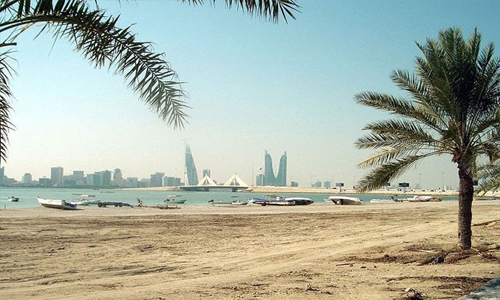AI can Power Bahrain’s Environmental Protection
By Kota Sriraj
Artificial Intelligence (AI) is a wide-ranging branch of computer science concerned with building smart machines capable of performing tasks that typically require human intelligence. It is the endeavour to simulate human intelligence in machines. The most common example of AI is how it has made it possible to deposit cheques from the comfort of one’s home. AI is proficient in deciphering handwriting and signatures thereby making online cheque processing practical. Yet another example is how banking processes powered by AI have perfected fraud detection by observing credit card spending patterns. In the business world, AI has minimised human-error and increased insights from big data which have lowered operational costs and increased profitability.
With each passing day, the world is being besieged by environmental concerns such as global warming, animal endangerment, carbon emissions, disease containment, air, and water pollution. Bahrain is no stranger to these threats and in an effort to counter these challenges, the kingdom has already taken a slew of appreciable measures. Some of the measures include the increased utilisation of renewable sources of energy such as wind energy, solar energy, tidal power and biogas instead of conventional sources. But in addition to these measures, Bahrain can stand to benefit much more if AI is roped in for environmental protection as it can take conservation to next level by combining scalability with accuracy.
Globally the application of AI processes is rapidly changing the narrative in the international environmental protection arena. The use of AI in environment protection includes machine learning for protecting the oceans, monitoring shipping, ocean mining, fishing, coral bleaching or the outbreak of marine diseases. For an island nation such as Bahrain, these applications of AI can have a far reaching impact which can further be bolstered by forging productive collaborations. For instance, The NGO, Nature Conservancy is collaborating with Microsoft on using AI for carbon storage, seafood harvesting, and conservation of marine life.
Bahrain can also find multiple inland uses of AI that can go the extra mile not only for ecological protection but also for ensuring food security. AI can be used in the Bahraini agricultural sector for automated data collection, detection of crop diseases and optimizing agricultural inputs and returns based on demand and supply. Bahrain can also use AI to accelerate the process of environmental analysis. AI can process a huge amount of data quickly and draw conclusions that may have not been possible by humans.
For instance, in China, IBM’s Green Horizon project uses AI technology to forecast air pollution, track pollution sources and provide potential solutions to deal with it. This is critical for Bahrain because the scale of pollution is reaching such levels that it may soon be difficult to manage the problem with only human efforts. The World Health Organisation (WHO) estimates that exposure to air pollution causes around 4.2 million mortalities across the globe each year.
As per its further estimation, around 91% of the global population lives in places where the air quality is much more than the guidelines of WHO and this has led to be a concern for nations around the globe, especially Bahrain. As challenges arising out of climate change get more complex Bahrain will do well to be an early adapter in the mass-scale implementation of AI in environmental protection. In the process of doing this the kingdom must set up a triangular integrated system of people, government and AI. As people get aware of the importance of environmental conservation, the government must take AI to grass root level and provide tools to people in the form of nature conservation apps powered by AI to the people to download. Through these apps the public can track their carbon foot print, reduce greenhouse emissions, provide crucial data pertaining to environment and much more.
These steps can help Bahrain in setting up state of the art environment protection systems that monitor and reduces the amount of energy consumption and water usage that helps in preserving precious resources. As the entire process is data driven, it will become easy for the government to track the progress of the conservation initiatives and make necessary changes to increase efficiency and spot problems in the processes long before they crop up.
The use of AI can aid the nation to also succeed in achieving the Economic Vision 2030 by ensuring sustainable growth of the country that is friendly towards the environment. Environmental protection powered by artificial Intelligence is the future, and Bahrain can set the global benchmark by adopting AI for nature preservation.
Kota Sriraj
Related Posts


